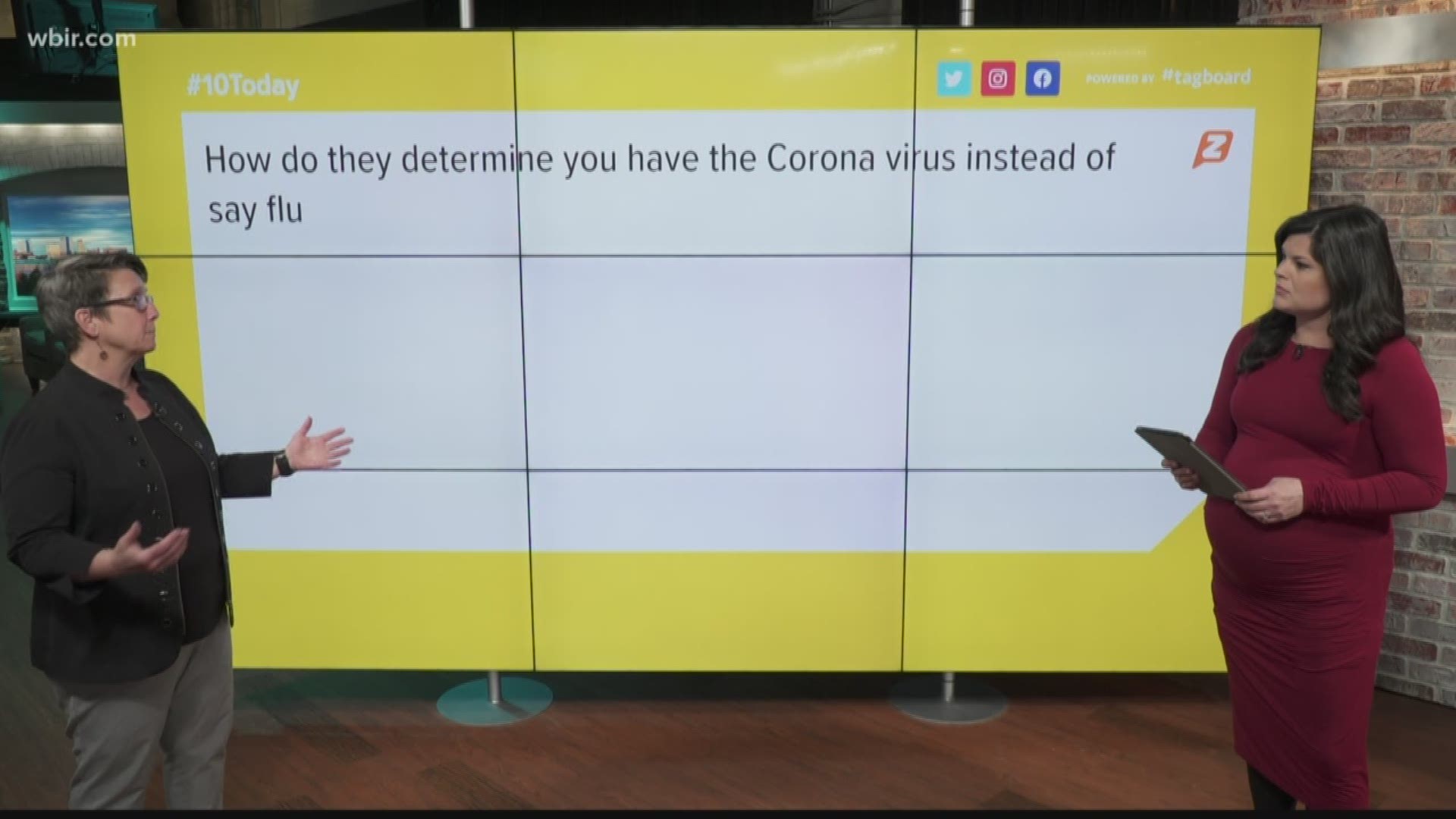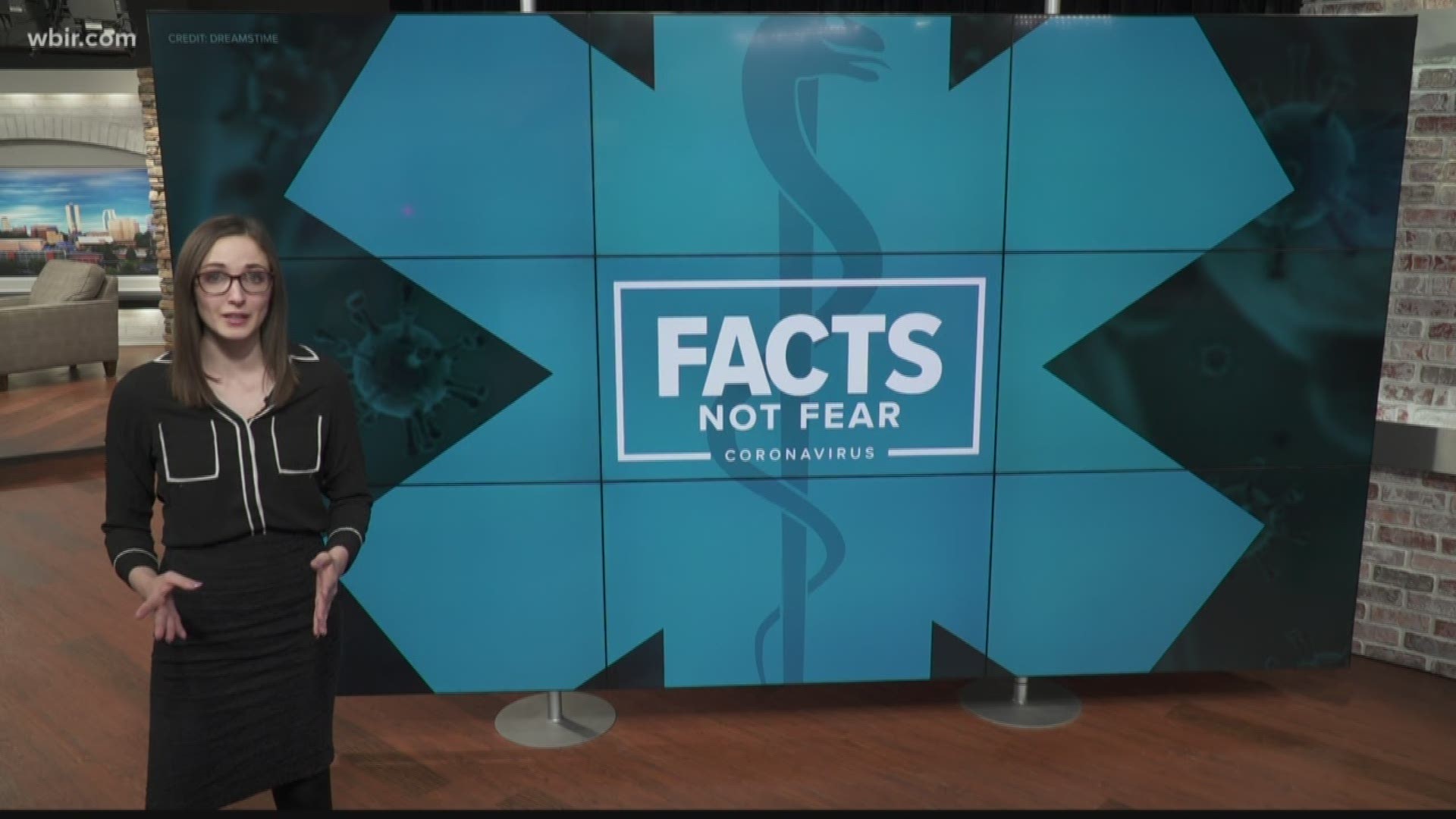As COVID-19 spreads, social media posts about the issue are becoming very common.
That's why people in East Tennessee had many questions about the virus. 10News brought in Dr. Martha Buchanan, director of the Knox County Health Department, to answer what you want to know.
Buchanan is also on the coronavirus task force Gov. Bill Lee announced this week.
Editor's Note: This interview took place before news of the first Tennessee case came out.
What is the possibility that an East Tennessean will get coronavirus?
I think as much as we travel, we are an international community now, and I think it's very likely we will have a case in Tennessee. Where will that be, there's no way to tell. We have plans in place. I like to remind people that we kind of do this all the time. We have TB cases. We isolate people and quarantine people on a regular basis. Not in large numbers, but public health knows how to manage this, so I feel comfortable that we will be ready. We work with our hospital partners to prepare as well.
How can you determine if you have symptoms of the coronavirus vs. the flu? The flu has no real treatment, so have they been treating the coronavirus with antibiotics or just the symptoms like when you have the flu?
Coronavirus versus flu is really hard to figure out. They both have a fever. They both have respiratory symptoms, but the coronavirus tends to be more in your chest, so more shortness of breath, more cough, less sore throat, less runny nose. So the fever, cough and shortness of breath, you look for with coronavirus. The flu gives you more of that runny nose and stuff like that.
The flu does have a treatment. There are some antiviral medications it can usually be treated with. Coronavirus, there is no treatment, just symptom relief only, so over-the-counter stuff. If someone gets really ill, they may have to go to the hospital to get help with oxygen or something like that.
How do they determine you have the coronavirus instead of say, the flu?
There are different tests. For people who go in with respiratory illness, they're going to test them for the most common thing in East Tennessee, the flu, first. So if your flu test is negative, it could be coronavirus or something else, but that's what they're going to do. To swab, it obtains in a similar way. It's just the way they test it is different.
What over-the-counter medicine could be used to treat the coronavirus? And how long does this virus last?
So there are no medications to treat the virus. There are plenty of over-the-counter medications to treat the symptoms. It doesn't shorten your disease. It just makes you feel a little bit better, so ibuprofen, Tylenol and all of the usuals you take for flu will help you feel better. How long you are sick varies based on your health before you got sick, the amount of virus you get exposed to and a lot of other things, so it just really varies. We're seeing some people who are sick for a week, they feel somewhat better and then get sick again. So it just varies.
I've heard that surgical masks cannot protect us against getting the coronavirus. Supposedly, the virus can penetrate the mask. How will medical professionals be protected when exposed to it?
The virus is really small, and it can go through some masks. If you're well, wearing a mask does not protect you from getting the virus. The way you're going to get the virus is you get those droplets and rub your eyes or nose. If somebody is sick and they're going to the doctor, we're going to ask them to put a mask on, so they don't cough those droplets out. The droplets are going to get caught by the mask.
Will testing kits be available for local doctors' offices?
Soon, we hope. We're hearing from the CDC that they're working on being able to release those for regular commercial labs to do. There's a whole process that the FDA has to go through to approve those, and I'm sure those commercial labs are working to be able to do that. And that will really open up testing for more folks.
I'm an RN and live in Grainger County. We don't have a hospital. Our plan is to shelter in place when there is a case in our county. Where/who would I call if anyone in my family shows signs of COVID-19?
First of all, call your doctor, if you have a doctor, and let them know you're worried. But remember, to be at risk for coronavirus, the average Tennessean needs to have traveled somewhere and been exposed, so if you haven't gone to one of those places where they have ongoing community transition, you're really not at risk. Your doctor is a good resource. Your local health department is a good resource. The state department of health is also a good resource.
Do you think it is safe to travel to Israel?
So the best thing to do, because this is constantly changing, is to go to the CDC's website and look and see what they're recommending regarding travel to wherever you're going. They keep that up-to-date. I could say one thing, and in 10 minutes it's going to change because of the changes I'm unaware of. The other place to get resources for that is the Department of State, so that's a federal-level department. Look there, they also have guidance on travel.
NURSING HOMES: East Tennessee nursing homes focus on enhancing precautions amid rising COVID-19 cases
MORE TOP QUESTIONS: Coronavirus: Answering the top 10 questions people have been Googling
WHAT YOU SHOULD KNOW: Facts not Fear: What Tennesseans should know about COVID-19


